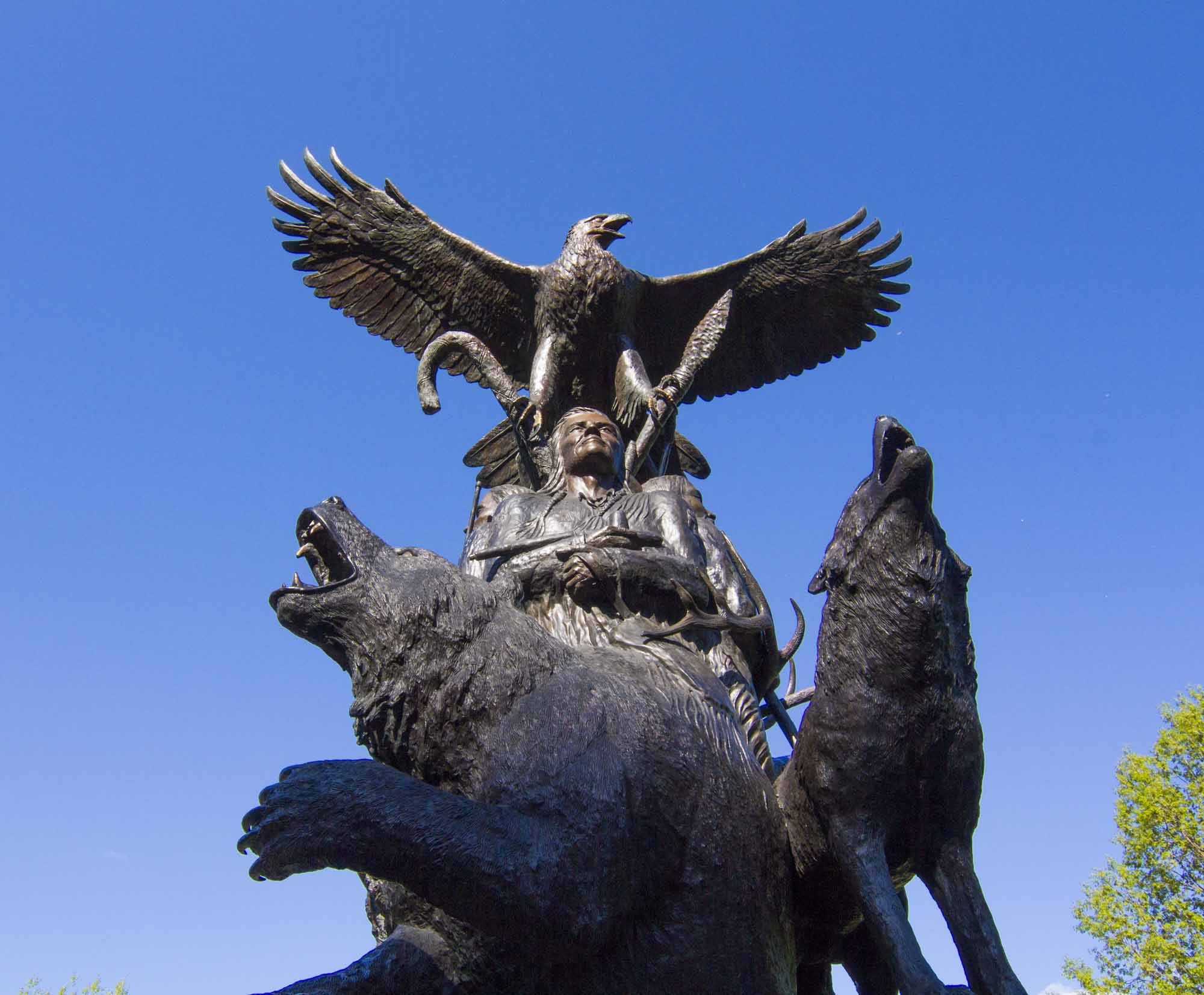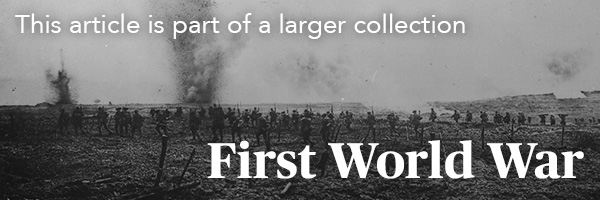Leo Bouchard, Ojibwe soldier and war hero (born 23 December 1898 in Lake Helen Mission, Nipigon, ON; died 28 July 1938 in English River, ON). Bouchard served in the Canadian Expeditionary Force during the First World War and was awarded the Distinguished Conduct Medal for his actions at the front.

First World War
Leo Bouchard enrolled in the 52nd (New Ontario) Battalion in Port Arthur (now Thunder Bay), Ontario on 31 May 1915. (See also Canadian Expeditionary Force.) The 52nd Battalion was raised in northwestern Ontario and had several Indigenous members in its ranks. Bouchard may have been bored with his training in Canada, as he went absent without leave on five occasions between July and November 1915. While the standard punishment was usually the loss of a few days of pay for the first offence, subsequent ones often resulted in detention. In Bouchard’s case, however, his punishments resulted only in the loss of pay, ranging from two to eight days.
The 52nd Battalion sailed for England on 23 November 1915 and arrived on 3 December. Bouchard took advantage of his new surroundings to go absent without leave for a final time and lost another two days’ pay in February 1916. The unit crossed the English Channel shortly afterward and landed in France on 21 February as part of 9th Infantry Brigade, 3rd Canadian Division. However, Bouchard’s poor disciplinary record was not held against him. He was promoted to corporal on 14 March 1917 and to sergeant on 2 November.
Bouchard played a role in Canada’s Hundred Days in 1918 but was taken out of the campaign when he was wounded. On September 29 — during the advance across the Canal du Nord to the suburbs of Cambrai — Bouchard was shot in his upper left arm. The bullet emerged from his forearm and caused injury to the ulnar nerve. He was admitted to No. 1 Casualty Clearing Station the same day for treatment. The next day, he began a journey through various British hospitals until he ended up in 16 Canadian General Hospital in Kent, England, where he stayed until 16 November. On his release, he remained in England at the Manitoba Regiment Depot until he was repatriated to Canada.
Distinguished Conduct Medal
Bouchard was awarded the Distinguished Conduct Medal (DCM) for his overall general performance during the war and especially during the Hundred Days campaign. The DCM was the second-highest bravery award that could be given to non-commissioned officers and soldiers of the British Empire during the First World War. (It was exceeded only by the Victoria Cross.) Of the more than 600,000 members of the Canadian Expeditionary Force (CEF), only 1,947 received the DCM. (See also Medal.) The citation for Bouchard’s award noted,
For conspicuous gallantry and devotion to duty. He has served with his battalion continuously for nearly three years. He has at all times shown marked personal courage, initiative, and skill in handling his men, particularly during the heavy fighting of August, 1918. On one occasion, when his officer was killed, he assumed command, and, though isolated from the rest of his company and in the midst of a dense fog, he led his men through the enemy barrage to their objective.
Post-War
Bouchard embarked on the Empress of Britain on 12 January 1919 and arrived in Halifax on 28 January. He was discharged from the CEF on 28 February at No. 10 District Depot in Winnipeg and gave Nipigon as his intended place of residence.
After the war, Duncan Campbell Scott, a well-known poet and the Deputy Superintendent of the Department of Indian Affairs from 1913 to 1932, noted the achievements of the Anishinaabe men who served with the 52nd Battalion. Although Scott sought to assimilate Indigenous peoples during his political career, he praised the soldiers of the 52nd Battalion using the terminology of the time:
Special mention must be made of the Ojibwa bands located in the vicinity of Fort William, which sent more than one hundred men overseas from a total adult male population of two hundred and eighty-two…The Indian recruits from this district for the most part enlisted with the 52nd…Their commanding officer, the late Colonel Hay, who was killed, stated upon frequent occasions that the Indians were among his very best soldiers. Their gallantry is testified by the fact that the name of every Indian in this unit appeared in the casualty list.
Scott went on to list eight Indigenous soldiers from the 52nd Battalion by name for their achievements during the war, including Bouchard. (See also Indigenous Peoples and the First World War.)
Memory
Leo Bouchard was one of the most highly decorated Indigenous soldiers of the First World War, winner of the prestigious Distinguished Conduct Medal for bravery during the final months of the war. Bouchard died in 1938 and is buried in Riverside Cemetery, Thunder Bay. On 21 September 2019 a new memorial was dedicated in Thunder Bay to recognize Bouchard and all the soldiers who served in the 52nd Battalion during the First World War.

 Share on Facebook
Share on Facebook Share on X
Share on X Share by Email
Share by Email Share on Google Classroom
Share on Google Classroom

